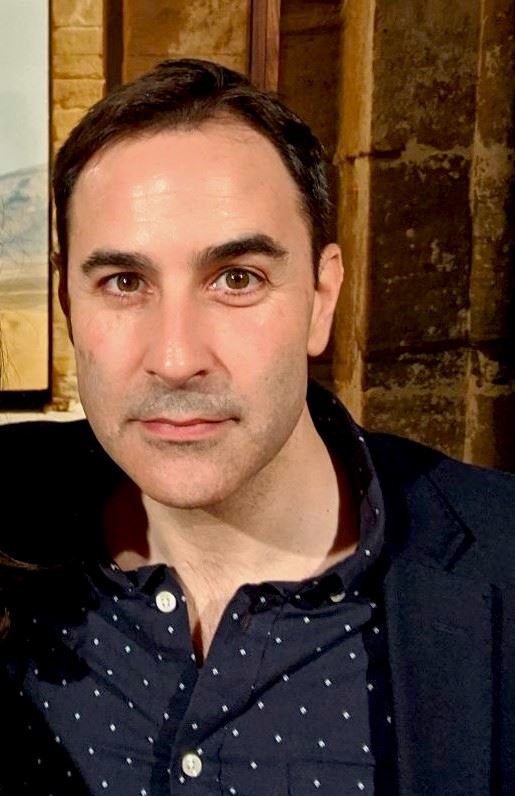 Back to Summer 2023 Newsletter
Back to Summer 2023 Newsletter
by Mark Mouro, LMFT
As a therapist who specializes in working with couples, two themes I see come up time and again are stability and change. The need for consistency and the need for movement. Both are necessary in a romantic relationship, and both existed previously in the parent-child attachment.
In early attachment relationships, infants and young children need to feel safe and secure in order to explore the world around them. They need to know that their caregiver is available and responsive to their needs, and that they will not be abandoned or rejected. When infants and young children feel safe, they are more likely to explore their environment and learn new things.
In romantic relationships, adults also need to feel safe in order to be able to explore and grow. They need to know that their partner loves and accepts them, and that they can rely on them for support. The feeling that your partner will be there for you when you need them is critical. That sense of dependability is also important for feeling like you can be yourself and not have to worry about being judged. When adults feel safe in their relationships, they are more likely to be open to new experiences and to take risks.
This is why in my sessions with couples we must establish a level of security first and foremost. This establishes the foundation on which we can build up from. Without a firm footing we are destined to slip and fall. It is one of the reasons I have a very structured approach with couples in the beginning sessions so that we have some predictability built in. It is meant to be a very stabilizing experience in which fairness and equity bolster the relationship.
But when they go home, what does safety look like? I explain to my couples that this can be found in emotional intimacy, trust, and commitment. In practical terms that could be setting and respecting boundaries, communicating values and priorities or balancing power. When we feel safe in our relationships, we are able to relax and be ourselves. We can also be more vulnerable and open with our partners.
Once there is sufficient continuity in security, the relationship can begin to shift into motion. Here is where we can be open to newness in the relationship. By taking risks in communication and behavior with your partner, it can lead to feelings of uncertainty. To step outside of your comfort zone and explore the unknown requires some comfort with anxiety. Engaging in novel experiences can be a great way for both partners to see each other in a new light and simultaneously confront vulnerability. This strengthens the relationship with growth and perhaps most importantly, we learn more about our partner.
Most recently, I have been working with many men who are trying to figure out whether to stay or leave their marriage. They desperately want their partner to change. And they’re fairly confident that they know their partner well enough that they can’t behave any differently. I work on getting us to a place of determining what they themselves are in charge of. Meaning if they can help their partner feel safer, then it is more likely that they will see some openness and willingness to react and respond differently. When they can create an environment of stability then their partner will feel more ready to extend themselves. Stability comes before mobility.
When safety is lacking in a romantic relationship, it can lead to feelings of anxiety, and fear. This can make it difficult to trust your partner and to feel close to them. When adventure is lacking in a romantic relationship, it can lead to boredom, stagnation, and resentment. This can make it difficult to stay interested in your partner and to feel like your relationship is progressing.
The trick for most couples is finding the right balance between these two paradoxical needs: Striking a healthy balance that allows for both safety and growth. To acknowledge and accept these two competing needs can value both partners and validate the relationship. This gets challenging when the need for safety and adventure can vary from person to person. Some people may need more safety than others, while others may crave more adventure. And remember that the need for safety and adventure can change over time. Herein lies the critical importance of both partners working autonomously to identify their own individual needs, communicating them to their partner and embracing a spirit of curiosity.
The image of a toddler going back and forth between their parent and the environment reminds me of the ongoing internal struggle between the opposites. Back then it required a balance in order to meet our needs of both freedom and safety. As adults, being able to hold this tension and find comfort in this sometimes liminal space is the beginning of individuation. Just like back then, finding the right middle ground means not too much of one and not too much of the other. I like to think of safety and adventure in romantic relationships as two opposite poles of the connection polarity that can work together to create a stronger and more dynamic bond. When both partners feel safe and adventurous, the relationship is more likely to be fulfilling and satisfying.
 Mark Mouro, LMFT is a psychotherapist working in private practice in San Jose. He specializes in working with couples and many of his clients are parents with young children. He is currently in psychoanalytic psychotherapy training at PAPPTP. Previously, he was a therapist on staff at The Couples Institute in Menlo Park. He lists his experiences with Vipassana meditation, foreign travel, and lobbying with CAMFT as being most influential. Mark lives in Willow Glen with his tech working wife and two young sons.
Mark Mouro, LMFT is a psychotherapist working in private practice in San Jose. He specializes in working with couples and many of his clients are parents with young children. He is currently in psychoanalytic psychotherapy training at PAPPTP. Previously, he was a therapist on staff at The Couples Institute in Menlo Park. He lists his experiences with Vipassana meditation, foreign travel, and lobbying with CAMFT as being most influential. Mark lives in Willow Glen with his tech working wife and two young sons.
Back to Summer 2023 Newsletter
